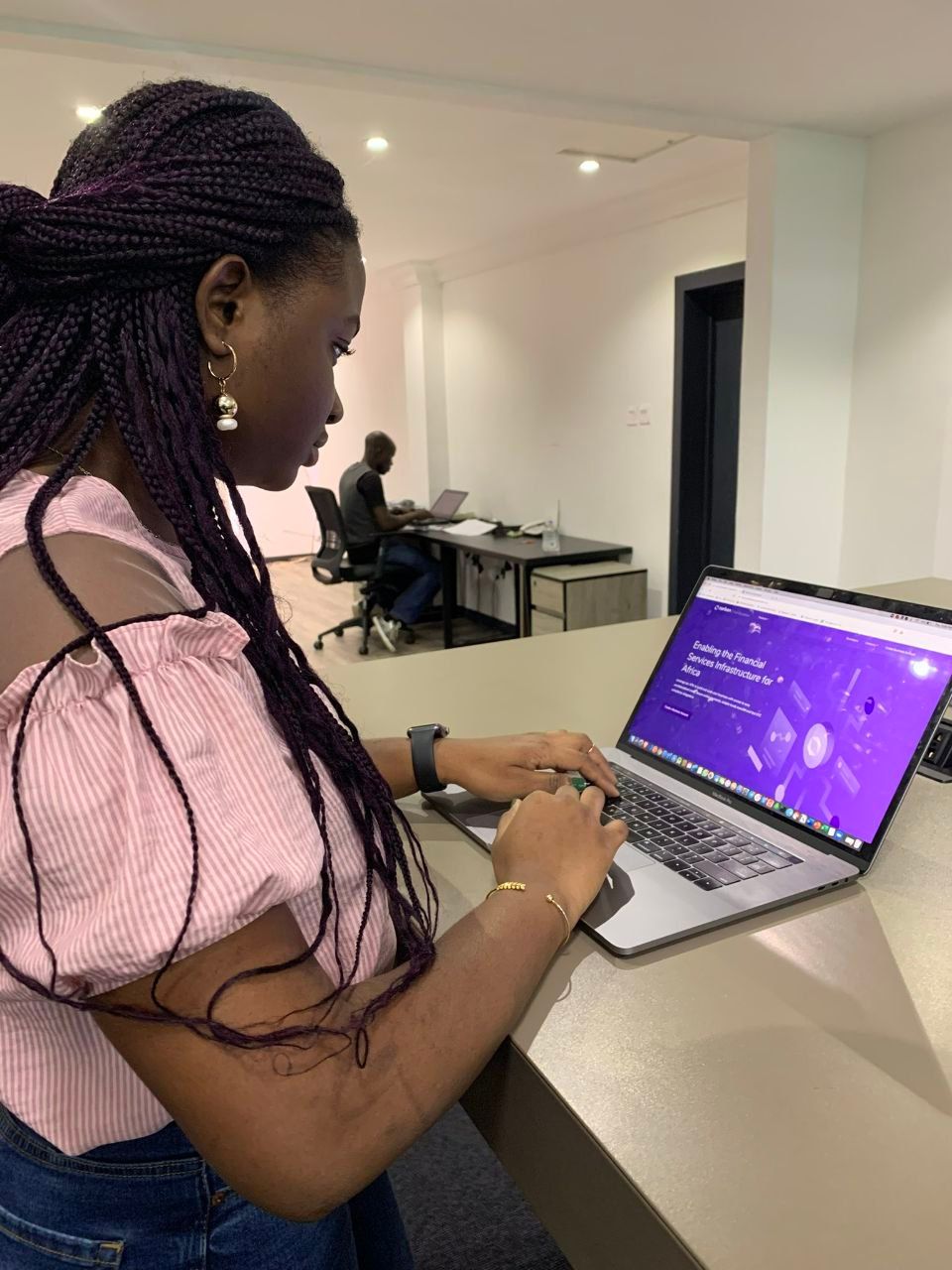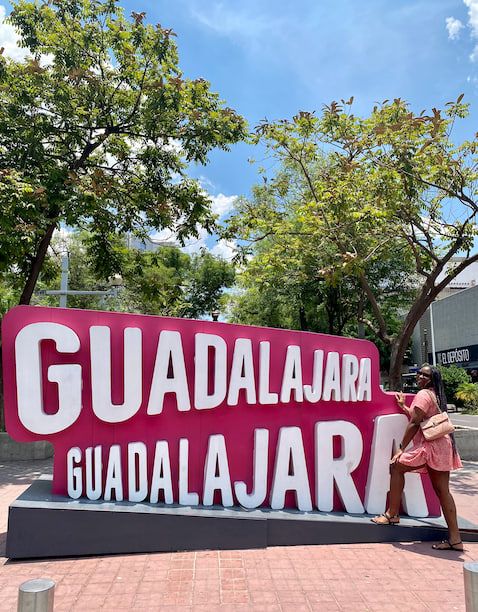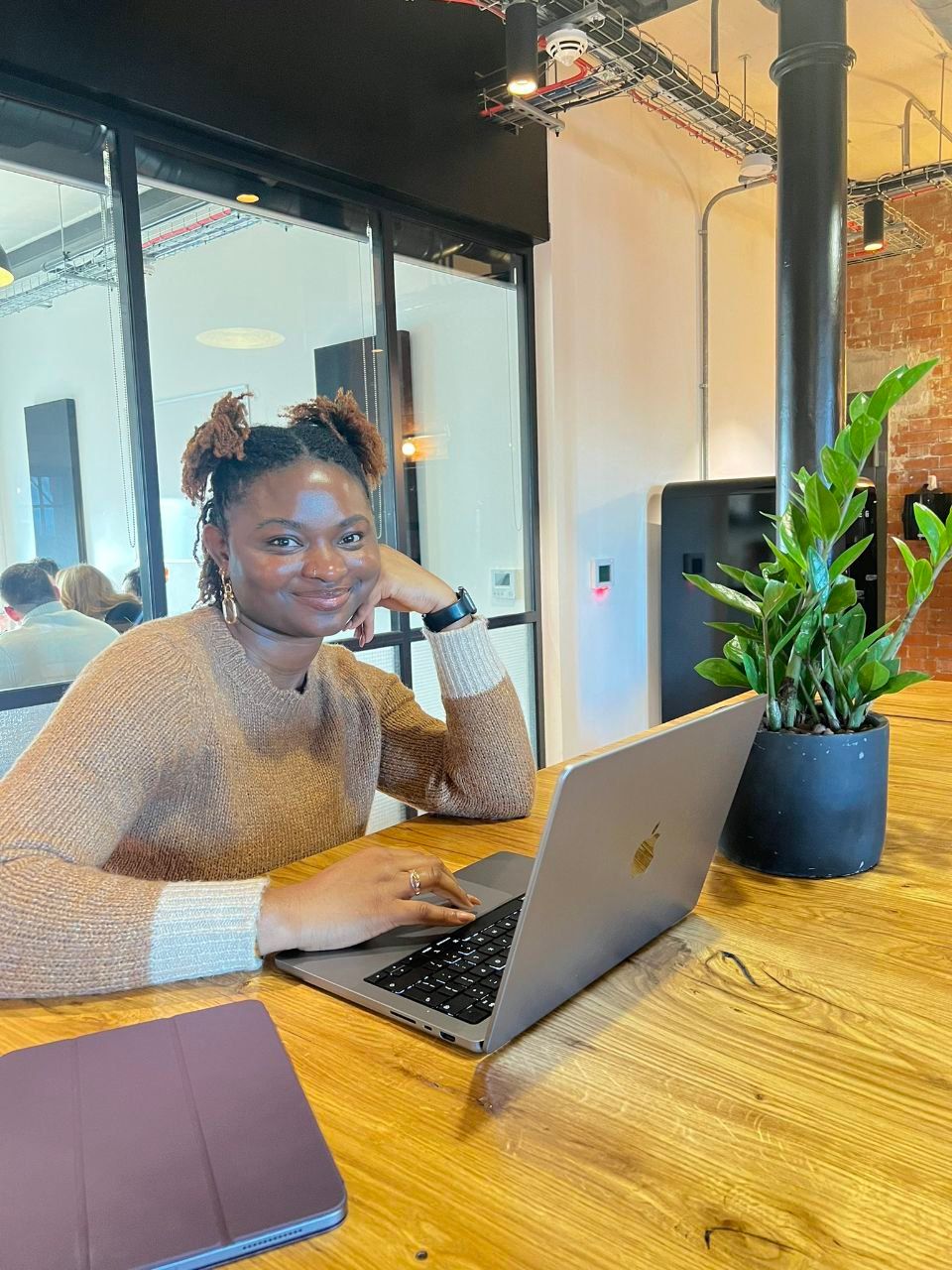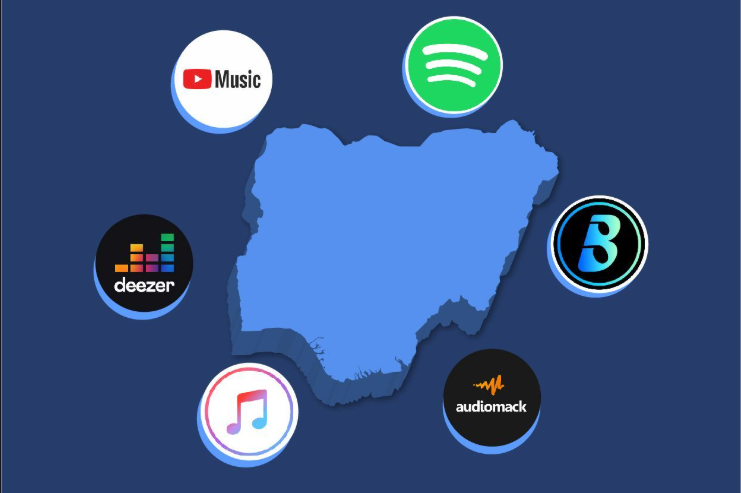My conversation with Aisha was scheduled for 1 pm on the first working day of 2023. It’s 12.30 pm and as I sat on my swivel chair in my coworking hub, I looked out the window and imagined what it feels like to pack my bags from Lagos to Mexico and London.
Snapped out of my imagination by the horns of a Lagos moving commercial bus, I went to her website for the umpteenth time to browse through. On her press page, I discovered that she was named on Selar 100, a list of the top digital creators in 2022.
I couldn’t wait any longer to meet this Content Marketer, digital nomad and beneficiary of the UK’s Global Talent Visa. The rare dry Lagos harmattan breeze punctuates our conversation, whistling sharply as Aisha and I begin to explore her experience.
Meet Aisha Owolabi
My name is Aisha Owolabi. I’m a Content marketer who started as a social media manager. I primarily work with tech or tech-enabled businesses to develop content ideas that are easy to engage with and help meet business goals.
I’ve been practising for seven years and currently live in London, England, after getting endorsed for the UK Global Talent Visa.
What inspired your transition from social media marketing to content marketing?
When I was younger, I wanted to study medicine. I did a diploma for a year in Medicine and Surgery at the University of Lagos, but I didn’t get the required grade, so I ended up studying Pure and Applied Chemistry for four years.
One random day in my second year of Chemistry, I was talking to a friend in the lab, and she mentioned being super busy with her clients. I got curious and asked her what she meant. She said she was a Social Media Manager.
That was the first time I heard anything about Digital Marketing or Social Media Management and I was perplexed. I loved social media but never knew I could do it as a job, so I went back to my hostel that day and spent my entire time doing research.
By the next day, I was signing up for courses. I started trying the things I was learning in my sister’s business to build a case study for my resume.
I grew her social media accounts, created a lot of content, did a lot of experiments and ran ads. Not long after, I got my first internship at a digital marketing agency, which opened my eyes to all the different areas of work.
I did email marketing, paid ads, PPC, SEO, content strategy, content creation, influencer management, PR, literally everything. I was the kind of person in the organisation who you called when you needed something done.
It was great because it allowed me to try my hands on all the different areas of digital marketing and decide for myself what I wanted to do going forward. After a few years, I realised I enjoyed content marketing the most.
Related Article: How these 20 pros succeeded in tech as a non-technical person
I loved thinking about strategies and creative ways to solve problems using content. So, I decided to specialise, and of course, that took a lot more courses and day-to-day experience working on the job.
What does a typical day for a Content Marketer look like?
My typical day has a lot of reading, writing and talking. Content marketing is essentially thinking of ways to use content (which can be anything from text, video, or audio) to solve a problem. The problem is multifaceted in the sense that all the stakeholders involved have one. (The business, customer, partners, etc.)
The business’ problem might be how to get its product in front of its audience. For the customer, the problem might be finding the right product. Sometimes, customers don’t even know they have a problem and that the organisation’s service can add some value to their lives.
Where content marketing comes in is thinking about the right strategy, channel, time and content to connect those two people—helping businesses solve their problems and making customers’ lives easier by connecting them to products/services they require at the time.
What do you enjoy most in Content Marketing?
Honestly, it’s creative problem-solving. As a content marketer, my goal is to simplify the complex for maximum impact. For example, if you have a technical B2B SaaS product, you need to simplify what that product is doing and help your prospects immediately see the value proposition and what they will get by integrating or partnering with your company.
My objective as a content marketer is to think about creative ways to solve that problem, and that’s what I enjoy doing. That process of taking a step back, looking at the business I’m working for and finding our unique selling point. What’s something we are doing that other people are not doing? Why should anybody buy it?
It’s important to identify that internally and also look externally. For the target audience, what are the key things that they are trying to solve right now? What do they care about, and how can we connect our business to what they care about using content? Where are they? Who are the key decision-makers? Where can we meet them? What social media apps do they use? What do they read? What do they watch? Where do they have fun?
Also, there’s a lot of collaboration—working with other teams to deliver a foolproof campaign that is well-thought-out for the customer. I would definitely say that creative problem-solving, strategy and collaboration are the three main things I enjoy.

What is that difficult challenge Content Marketers struggle with?
Let me start by saying content is that function in the business outside the product team that has to know the most about the product, company and industry. You can’t sell what you don’t understand and that knowledge gap can get really wide depending on how much you challenge yourself. For example, I recently joined a company with a highly technical product in an industry I’ve never worked in before.
For me, the biggest challenge has been understanding the industry, our different target audiences, the product, and the business model. That’s probably the hardest part because the more complex it gets, the more work you have to do, the more materials you have to consume, and the more curious you have to be.
This is something many content marketers can relate to because Content is a career that allows you to spread your wings and work across multiple industries, but the more technical or the more you go outside your comfort zone, the more work you have to do.
Especially when you are already on the job and people are making demands of you, so you don’t even have all that time. You can’t be like, “oh, let me take three months to really understand this business.” You have to be learning and making an impact on the job. For me, what I’ve decided to do is to ask questions. I don’t care if it makes me look stupid.
In meetings, I’m always the person that goes, excuse me, what is X? I’ve made that my personality. It’s important to be unafraid to ask questions and allow yourself to learn until you get to a point where you actually know for a fact what you are trying to sell. Dedicate time and be intentional about learning from experts to help you understand the company and the wider industry.
What inspired your decision to leave Nigeria?
I barely slept on the 20th of October 2020 after watching the Nigerian Army shoot at peaceful protesters during the #ENDSARS protests. I knew I needed a break from Nigeria and couldn’t continue living there much longer.
At that time, I was already working remotely for a global company headquartered in Mexico, so I thought of exploring digital nomad visas.
I was still doing some research, but the following day, while talking to my manager, I told her about my decision to leave Nigeria. She was aware of everything that had been happening.
It was during our regular 1:1, and I didn’t outrightly ask that they should move me. I just casually mentioned that Mexico was on the list of countries I was considering, but she was so excited and immediately said I should come to Mexico.

Following our conversation, my manager alerted the people team and not too long after, the immigration process started. The company processed my visa and paid all the required fees to help me move there smoothly.
Something I learned from that experience is that closed mouths don’t get fed because, with the digital nomad visa, I was going to have to manage all the admin and documentation on my own, but just because I mentioned my decision to my manager, I didn’t have to do any of that.
How would you compare the work culture in Nigeria, Mexico and the UK?
Working in Nigeria was an interesting experience. I worked with startups mostly in offices, and when I think back now, the thought of commuting long hours to an office every day and still having insane expectations for productivity is crazy.
Infrastructure challenges for someone building a career in Nigeria are widely different. It makes a lot of difference when you start working in a country that doesn’t have those problems.
Once I moved to Mexico, I immediately realised I had more time to think and accommodate other interests beyond my 9-5. People understood the importance of taking breaks often, and everyone trusted others to get their work done.

There was the fact that I got more senior in my career as well, but from a top-down perspective, even for the junior people in the organisation, there was that trust already given. And that trust was only questioned when people were not meeting their demands. It wasn’t something you had to earn.
The UK, however, is fast-paced, especially in my industry. There are a lot of things to get done with little time. But you can still see that respect for prioritising breaks as well. Another thing I’d like to add is what the lines are blurry between work and life. In the company I work at, for example, people are encouraged to bring their interests and hobbies to work and share experiences with colleagues with similar interests to deepen the bonds and connections at work.
How did you get the UK Global Talent Visa?
The UK has always been appealing to me as a place to live, mostly because I have lots of friends and family here and the proximity to Nigeria. In December 2021, I visited London on holiday and talked extensively with a friend in the same industry, Peace Itimi, who’s also in the UK on the Global Talent Visa. She encouraged me to apply for the visa even though I was very sceptical.
I knew the UK issued the visa to business professionals as well, but it’s not as straightforward as it is for tech professionals in terms of collating your evidence and documents. Although I had worked with many product-led organisations, the thought of organising all of my work into evidential documents that would match the criteria for Tech Nation seemed like a hurdle.

But I was convinced to at least try, so I returned home and read through all the visa guidelines, collated my documents, and with my friend’s support in reviewing my evidence, I was ready to apply.
I eventually got my endorsement on my birthday in March 2022 and moved to the UK in May. I learned a lot through the application process, mainly because my application was initially rejected. So, I had to send in an appeal before the endorsement got approved. It’s essential to be open to opportunities as they come and look for ways to press further before you give up.
What can we expect from you going forward?
For now, I’m focusing on settling into the UK even more and exploring the many opportunities for my career here. I’m also providing access to valuable content and resources to help young marketers build successful careers through my community, Smarketers Hub.
Also Read: 8 things to get you settled in the UK as a Global Talent immigrant
Get passive updates on African tech & startups
View and choose the stories to interact with on our WhatsApp Channel
Explore




